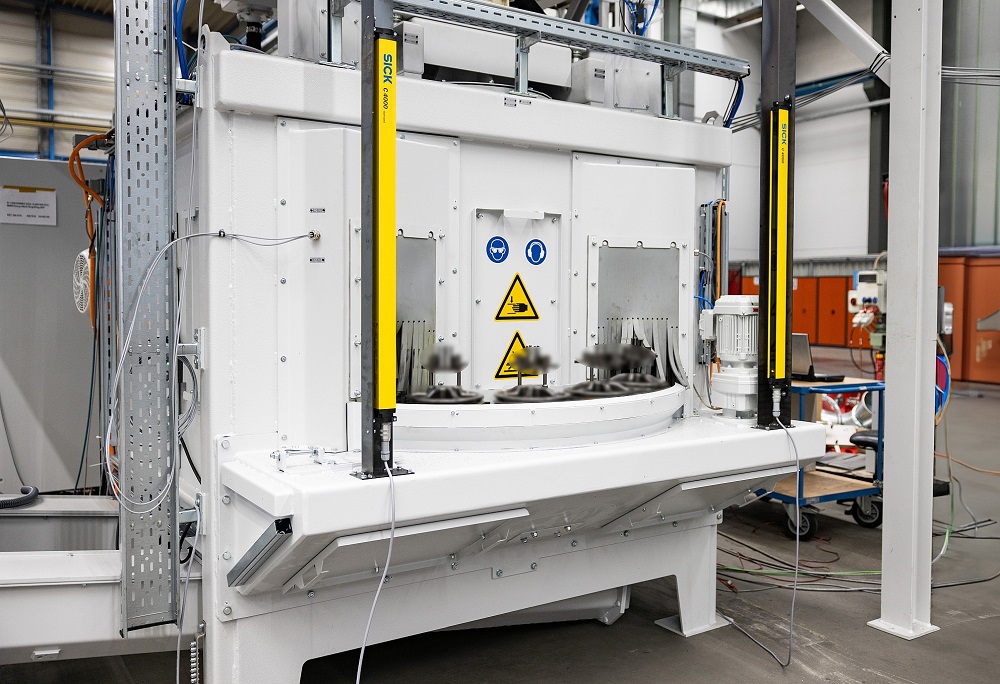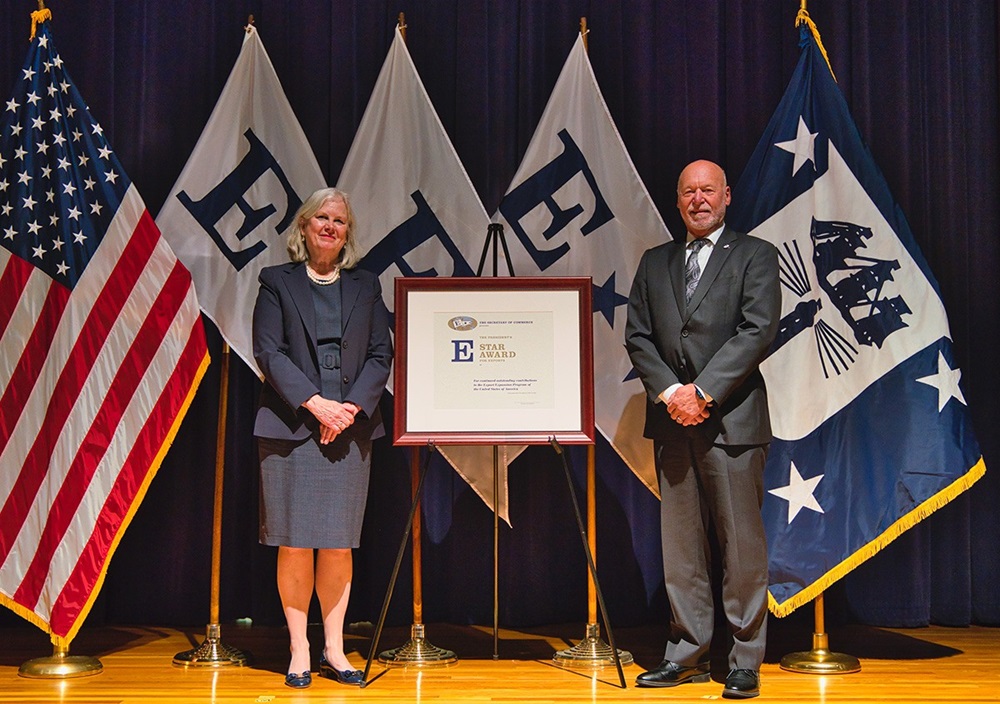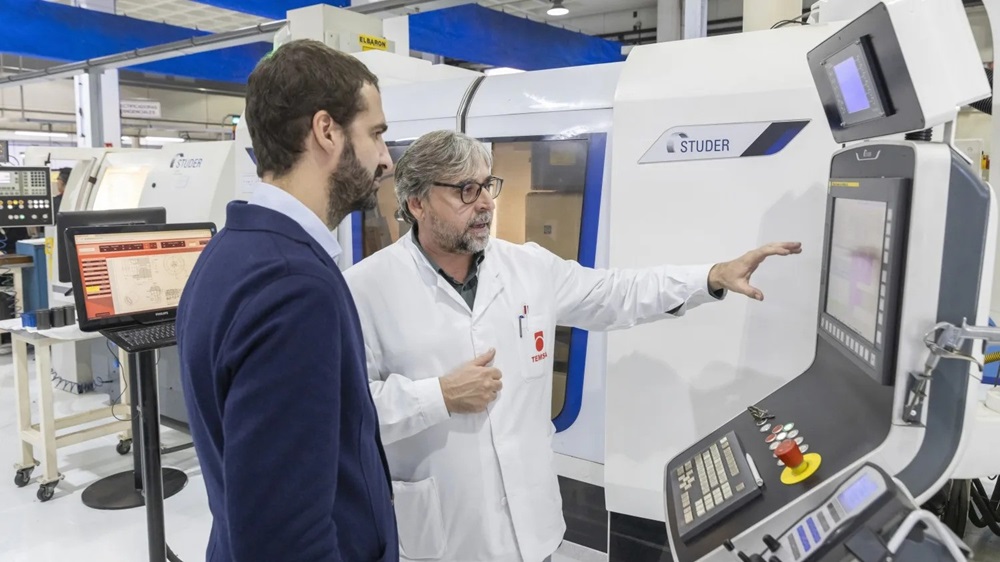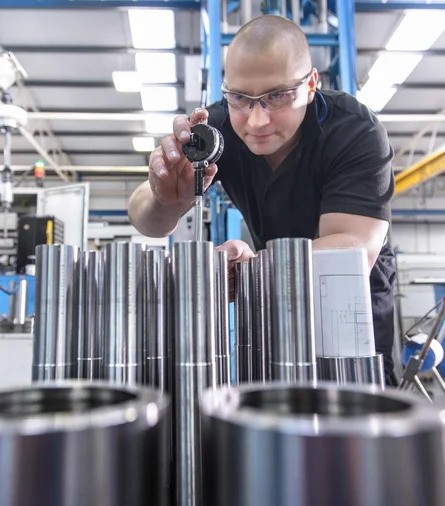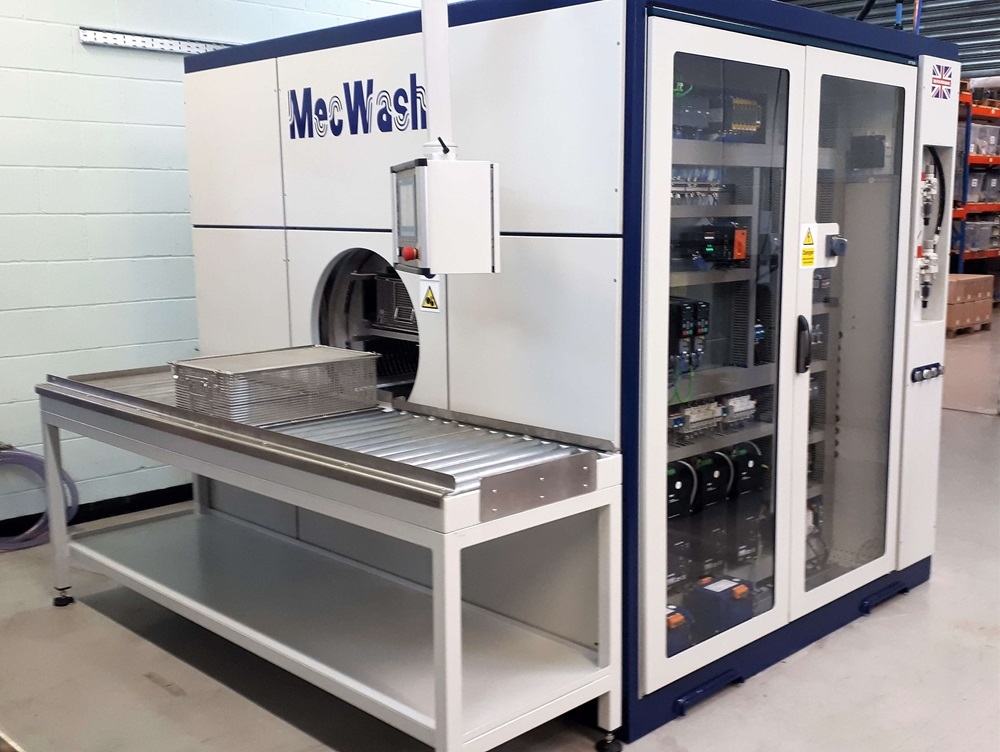BMW’s plant in Dingolfing has integrated an RST 200-S15 indexing satellite table shot-blast machine from Rösler into a new manufacturing line for E-vehicle gear components. The company decided to purchase the Rösler equipment because it had excellent experience with machines of the same type regarding productivity, process stability and ease of maintenance.
The rotary table of the compact shot-blast machine contains 15 rotating satellite stations equipped with workpiece-specific fixtures. Depending on the workpiece type, a component loading/unloading system supplied by the customer places one or several parts on the satellite stations. Thanks to the machine’s design, non-productive idle times are minimal.
After loading, workpieces pass through multiple stations in the shot-blast machine at indexing cycles of 20 seconds. These stations include two blast positions. Special lifting gates prevent any spillage of blast media into other stations. During the peening operation, the satellites rotate at pre-set speeds in front of the blast turbines. In combination with automatic blast pattern adjustment to the respective workpiece shape, this ensures the realisation of homogeneous peening results. A compressed-air cleaning station placed in front of the loading/unloading section blows off dust and residual blast media from the finished components.
The master computer of the manufacturing lineselects the workpiece-specific processing programs, including the setting of the turbine position and blast pattern. For this purpose, the controls of the peening machine were integrated into the upper-level computer system at BMW in Dingolfing.
To meet the automotive industry’s high standards regarding process stability and traceability, the machine’s controls allow the continuous monitoring of all relevant shot-blasting parameters. Replenishment of the blast media also takes place automatically.
More information www.rosler.com






